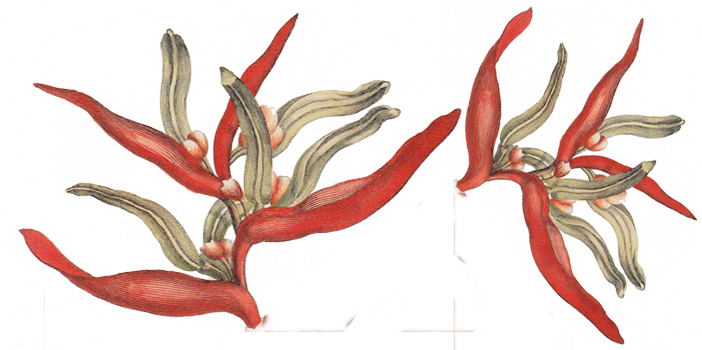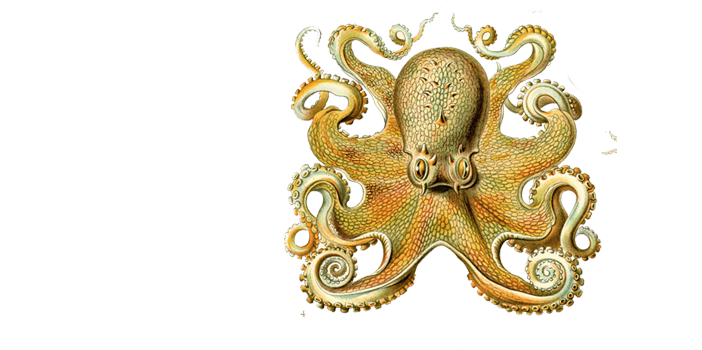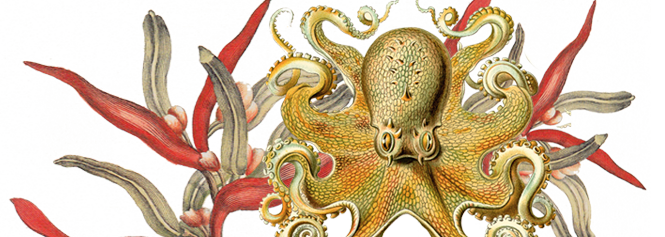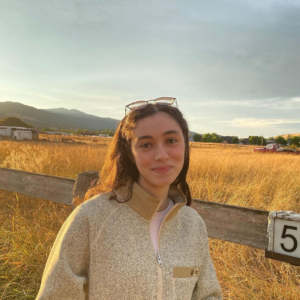
Sarah R. Akaaboune
Class of 2025
General science
Sarah R. Akaaboune is a writer from Ann Arbor, Michigan. She attended the University of Michigan, where she studied neuroscience and English. In the lab, she studied the impacts of Golgi fragmentation on lysosomal protein biogenesis and the development of neurological disorders. Outside of the lab, she served as a writer and editor for her student newspaper, The Michigan Daily, where she covered a variety of topics, most notably medical malpractice and its impact on survivors.
Sarah has also explored science communication and data accessibility as a community leadership fellow at her local health department and as a student correspondent for Teen Vogue, where she covered the 2024 presidential election cycle in Michigan.
When she isn’t writing, Sarah can be found in the lab, listening to old episodes of This American Life, or spending time with her cat.
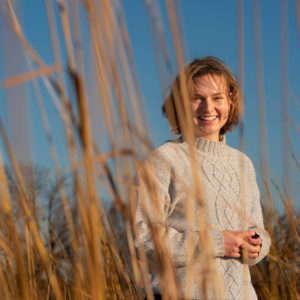
Anika Jane Beamer
Class of 2025
Environmental science, microbiology
Anika Jane Beamer is a Midwesterner and a writer with a background in the biological sciences. She’s spent years researching and thinking about life’s little guys—viruses, bacteria, and fungi. Now, she’s interested in writing about how manmade changes to the environment are transforming microscopic life, for better and worse.
Anika Jane has spent the last two years as the science writer for Grinnell College in Grinnell, Iowa. There, she shared stories about research, faculty, and students in fields as far-flung as robotics, galaxy formation, water geochemistry, and lung cancer. She sees herself as a translator, deconstructing the “language of science” to ensure that the hard-to-see, and harder-to-fathom, can be understood by a wide audience. Whether hiking, painting, birdwatching, or playing soccer, she’s often thinking about her place in nature and the science that surrounds her.
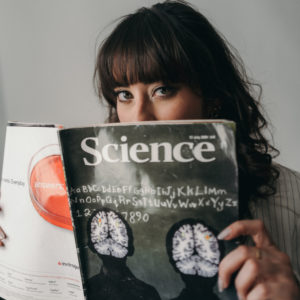
Jessica Chomik-Morales
Class of 2025
General science, neuroscience
Jessica Chomik-Morales was raised in South Florida, where from an early age she wondered why people act the way they do. She holds a bachelor’s degree in neuroscience and since graduation, has worked in a cognitive neuroscience lab at MIT, where she uses fMRI to explore abstract thought in humans.
As a daughter of immigrant parents from Paraguay, Jessica is fiercely proud of her heritage and uses her privileged position as a bilingual scientist to bridge the gap between a predominantly English-speaking academic world and the Spanish-speaking public. She hosts and produces Mi Última Neurona, a neuroscience podcast in Spanish, to ignite curiosity, spark conversations, and empower her community.
At MIT, Jessica is excited to expand her communication abilities while serving the Spanish-speaking community, weaving together population-relevant narratives to foster understanding and inclusivity within the scientific landscape.
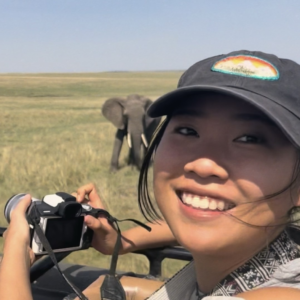
Nanticha Ocharoenchai
Class of 2025
Environmental science, general science, wildlife conservation
Nanticha Ocharoenchai, or Lyn, first started journaling when she left her hometown of Bangkok to go on a year-long exchange in Italy. When she found hiking and backpacking, these hobbies and adventures sparked her love of environmental journalism and activism.
Just before graduating in communications from Chulalongkorn University in 2019, Lyn organized what grew into Thailand’s first youth climate movement. Since then, she has written and produced short films for WWF, Greenpeace, Mongabay, The Pulitzer Center, and more, covering topics from wildlife conservation and sustainable design, to Indigenous knowledge and land rights. In a search for practical—and fun!—environmental solutions, Lyn is furiously learning about natural science and conservation technology and is excited to explore more at MIT.
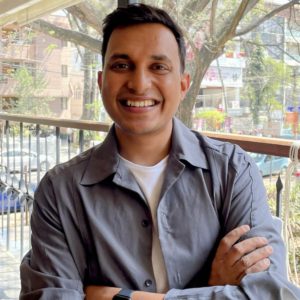
Pratik Pawar
Class of 2025
Global health, medicine, science policy
Pratik Pawar is a science journalist who covers stories about global health, medicine, and science policy. He is particularly interested in covering neglected health issues in the Global South and in understanding the role of inequity and socio-political realities in furthering health crises. His work has been published in The Atlantic, Nature, Science, and Undark, among other outlets.
At MIT, Pratik aims to learn new skills in data and investigative journalism to help him tell nuanced and substantive stories about global health. When he’s not at his desk, you can find Pratik noodling on his guitar, reading personal essays, or out in nature.
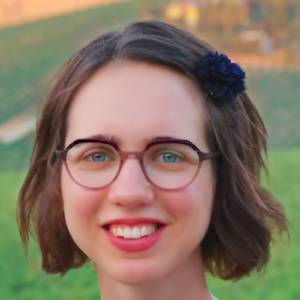
Paula Rowińska
Class of 2025
Environmental science, geography, math, mental health
Paula Rowińska is a writer from Warsaw, Poland, and is the author of Mapmatics: A Mathematician’s Guide to Navigating the World, a popular science book about the mathematics of maps.
While pursuing her Ph.D. in mathematics and statistics at Imperial College London, Paula discovered that she prefers science communication to research. She has shared her passion for math by contributing to newspaper articles, radio shows, and TV programs. Since graduation, she has been creating interactive math and data science content for Brilliant, an educational company.
At MIT, Paula will continue exploring the role of mathematics in our daily lives while also covering topics like mental health and environmental issues. In her free time, she reads more books than she cares to admit, loves learning foreign languages, and has a soft spot for musicals.
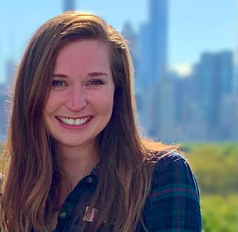
Mackenzie White
Class of 2025
General science
Mackenzie White is a writer and planetary scientist from Austin, Texas. Her journey into science writing began at the University of Texas at Austin, where she received liberal arts and science degrees.
Driven by curiosity about other worlds, she earned a Ph.D. in geophysics, specializing in temperatures on the Moon and Mars. During graduate school, she worked on NASA missions, which fueled her enthusiasm for sharing discoveries with the public. She has contributed to outlets like Google Arts & Culture and Eos and was a 2022 AAAS Mass Media Fellow at Science Friday.
At MIT, Mackenzie aims to strengthen the connection between humans and the natural world through storytelling. When she’s not writing about space rocks, you can find her along the rivers of central Texas with her dogs, Rocky and Maggie.
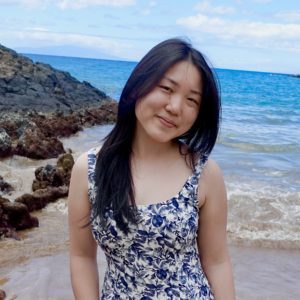
Celina Zhao
Class of 2025
Anthropology, biology, technology
Celina Zhao is pumped to be staying in Cambridge for another year after studying writing and biology as an undergraduate at MIT.
Celina’s work with Science, NOVA, and Cell Press has led her to explore scientific topics ranging from telescope cyberattacks to controversial fossils to microbes that travel through wildfire smoke. She’s fascinated by the relationship between culture, technology, and the natural world, and is excited to work on long-form projects that explore the evolution of this intersection in the coming year.
Outside the classroom, you can find Celina running along the Charles, drinking too much matcha, and challenging herself to try something new every day.
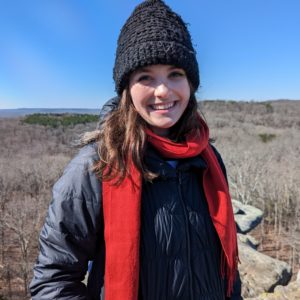
Eva Cornman
Class of 2024
Biology, medicine
Eva Cornman is a writer from the suburbs of Chicago. While studying molecular and cellular biology at the University of Illinois at Urbana-Champaign, she realized that she preferred writing and talking about science over actually doing it. She left the University of Illinois with a bachelor’s in biology, a minor in creative writing, and a newfound passion for science writing.
After graduating, Eva spent a year managing a clinical research laboratory that studies the human gut microbiome. At MIT, Eva hopes to use her science background and clinical lab management experience to inform her writing on biology and medicine.
When she isn’t writing, Eva can often be found dancing, hiking, or hanging out with her cat.
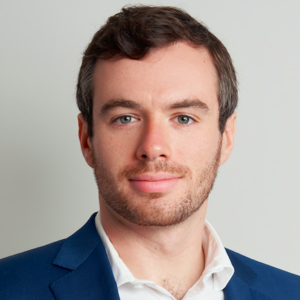
Noah Daly
Class of 2024
Health, medicine
Noah Daly is a writer and reporter covering drug policy, psychedelic science, art, and medical tech innovations. His reporting can be found in The Daily Beast, Rolling Stone, Up Magazine, and Lucid News, among other publications.
Originally from New York City, Noah’s love for science was nurtured by watching MythBusters and Steve Irwin: Crocodile Hunter as a kid. After graduating from CUNY Brooklyn College, his love of journalism inspired him to get as close as possible to people telling true stories that change minds and hold truth to power, first as an intern at Foreign Affairs Magazine and then as a graduate administrative aide at New York University’s journalism school.
At MIT, Noah will investigate the therapeutic convergences of trauma, violence, and substances that alter our states of consciousness. Outside of the classroom, Noah is an avid reader, a novice guitar strummer, a better-than-average chef, and a Purple Belt in Brazilian Jiu-Jitsu under Gregor Gracie.

Sophie Hartley
Class of 2024
Conservation
The woodlands of eastern Vermont sparked Sophie Hartley‘s early interest in forest ecosystems. She studied human development and creative writing at the University of Chicago, where she wrote about wild boar, rewilding, and rural Montana’s pushback against bison conservation.
Her work with the Marine Biological Laboratory and the New Hampshire State Parks helped Sophie find her footing as a photojournalist. Since graduating, she has been writing fauna and flora identification guides for hikers in Arizona’s Apache-Sitgreaves National Forests.
At MIT, Sophie wants to keep investigating how culture and science clash in conservation efforts. When she’s not writing or taking pictures, you can usually find her trying to redecorate her apartment.
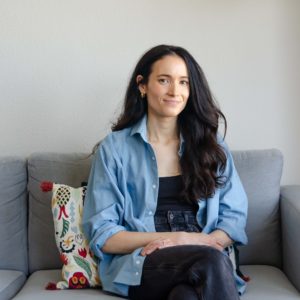
Sarah Hopkins
Class of 2024
Climate change, migration, public health, science and the law, social justice
Sarah Hopkins holds graduate and undergraduate degrees in literature from the University of Oxford and Sarah Lawrence College. She has worked as a writer, editor, and communicator for social justice organizations, including the ACLU, where she translated complex legal concepts to non-expert audiences and to the media. In these roles, she saw how the law relies on experts trained in scientific fields to move people in power toward informed decisions. She also witnessed how people in power seek to suppress the truth from the public and from the people most impacted by their decisions or policies.
At MIT, Sarah is excited to expand her storytelling across different mediums. She is interested in researching the use of junk science within the criminal justice system and the complex ways in which the law intersects with science—two disciplines that seek the truth but operate in contradictory ways. She also plans to explore other intersections between science and social justice, such as climate change and public health.
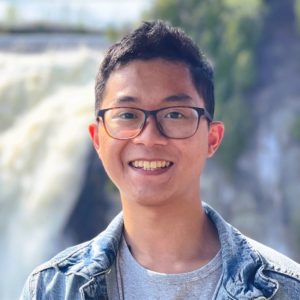
Alex Ip
Class of 2024
Climate change, environmental justice, urban studies
Born and raised in Hong Kong, Alex Ip graduated with a bachelor’s in environmental engineering from Georgia Tech. He is the founder and editor-in-chief of The Xylom, a student-led nonprofit newsroom exploring how communities are influenced and shaped by science. Alex is also leading a team to translate the KSJ Science Editing Handbook into Chinese (Traditional and Simplified).
At MIT, Alex aims to cover the future of cities and environmental justice in the American South, in addition to the often contentious dynamic between evangelical Christianity and climate change. When he’s not writing, you could see Alex zipping around town on his bike, watching a lot of basketball, and cuddling his cat.
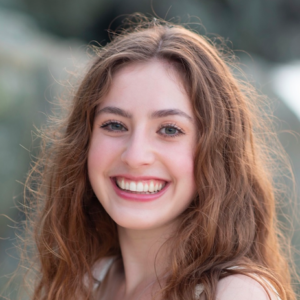
Hannah Richter
Class of 2024
Astrophysics, environmental science
The moment Hannah Richter learned about science writing, she was hooked: it combined her lifelong loves of nature and storytelling.
Hannah holds a bachelor’s in environmental science and a minor in creative writing from the University of Chicago. In the lab, she studied bivalves and ocean acidification before interning at Circle of Blue, where she covered East Coast saltwater intrusion, and at the Living on Earth radio show and podcast, where she produced segments from methane-filled cow burps to cryptocurrency and energy use. Hannah also took her sights from Earth to the stars, interning in communications at NASA on the Hubble Space Telescope team and writing an ebook for the Fermi Space Telescope.
At MIT, Hannah aims to cover more stories about the environment and humans’ role in shaping it.
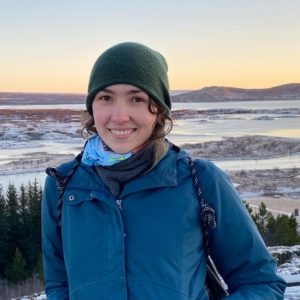
Lily Stewart
Class of 2024
Climate change, reproductive health
Lily Stewart is a writer from Northeast Ohio. She attended the University of Cincinnati, where she studied writing, literature, and biology. She has explored multimedia storytelling and science writing through her varied experiences as an interpretive writer for local parks, a science communication intern at environmental organizations, a strategic foresight researcher focused on the future of misinformation, and an organizer in the reproductive justice movement.
At MIT, Lily plans to write about reproductive health and medicine. She is especially interested in the intermingling of climate change and reproductive health. When Lily isn’t writing, she loves to bind books, garden, and practice her plant identification skills.
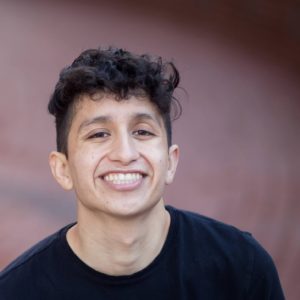
Alex Viveros
Class of 2024
Biotechnology, health, medicine
Alex Viveros stumbled into journalism as a college freshman when he spontaneously joined his student newspaper, The Tufts Daily, and signed up for the first section he could think of: “Sports!” He went on to lead The Tufts Daily as its managing editor and editor-in-chief during the onset of the COVID-19 pandemic.
Alex majored in biology and community health at Tufts, and was a member of the Politico Journalism Institute’s 2021 class. He has interned at Science Magazine and The Broad Institute of MIT and Harvard, where he wrote about biological sciences, gene therapy, machine learning, and chimpanzees.
At MIT, he hopes to cultivate long-form stories on chronic disease and advancements in biotechnology. When he’s not writing, you can find Alex practicing martial arts, playing competitive video games, building Legos, and supporting his favorite Premier League football club.



